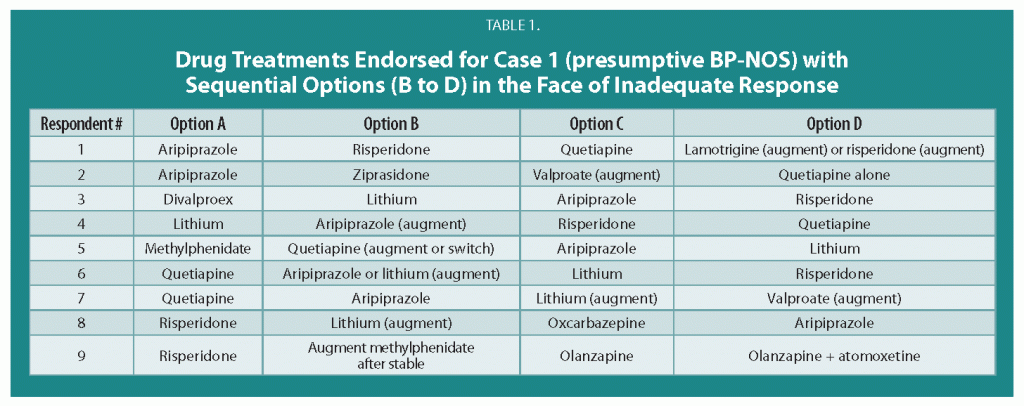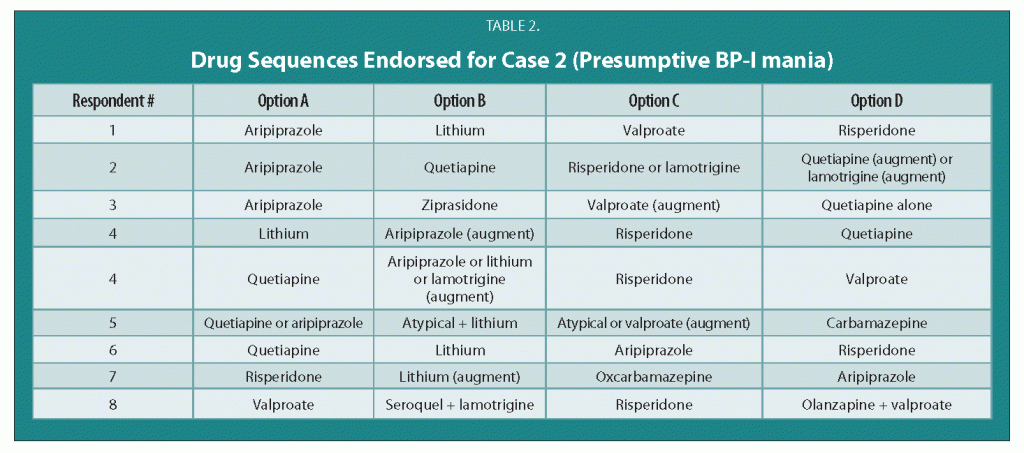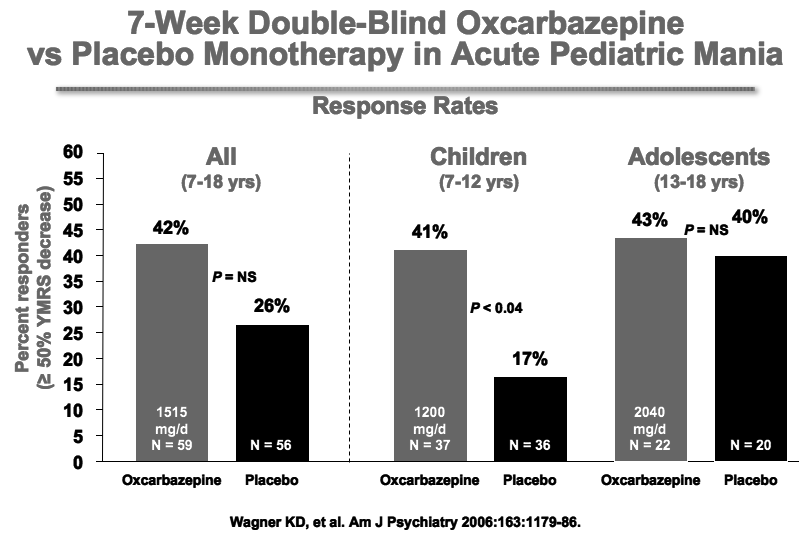Treatment Guidelines for Two Hypothetical Cases in Children
There are no FDA-approved treatments for children under age 10 with bipolar disorder. For an article in Psychiatric Annals, this editor and Janet Wozniak asked experts how they would sequence treatment of a hypothetical case of a 6-year-old with extreme mood instability consistent with a diagnosis of BP -NOS (see Table I). We also asked how the experts would treat a different case of a 9-year-old with a full-blown psychotic BP-I mania (see Table II).
The results are presented and discussed in detail in the article, and are presented here to reinforce several points. The recommendations for children under 10 and for BP NOS are highly similar to consensus guidelines for older BP I children compiled by Kowatch et al.
Treatments in the face of non-response to option A or others are sequenced differently by different experts, but almost always involve an atypical antipsychotic (AA) or a mood stabilizer (MS) such as lithium, valproate, carbamazepine/oxcarbazepine, or rarely, lamotrigine. Revisions of atypical antipsychotics and mood stabilizers and use of combinations are the common next strategies.
Oxcarbazepine May Be Helpful In Pediatric Mania
Oxcarbazepine (OXC; Trileptal) is a close structural relative of carbamazepine (CBZ; Tegretol; Equetro), but unlike CBZ, OXC is not an enzyme inducer, nor does it have CBZ’s risks of rare agranulocytosis or aplastic anemia.
Wagner et al.’s report on OXC in the American Journal of Psychiatry in 2006 is typically cited as evidence the drug is ineffective for pediatric mania. But observe the figure:
While this was true of OXC’s efficacy in adolescents (due to a large placebo response—see rightmost column), OXC worked significantly better than placebo in children ages 7-12. These younger children often have more chronic presentations and BP-NOS. This may explain the low placebo response rate in the younger children.
Oxcarbazepine is considered helpful by many clinicians (See Post and Wozniak’s survey of expert treatment approaches to childhood illness, published in Psychiatric Annals in 2009) and should not be dismissed altogether.
Smoking Multiplies Risks for Bipolar Patients
Smoking is associated with a less successful outcome in the naturalistic treatment of bipolar patients, reported Seetal Dodd and colleagues at the 4th Biennial Conference of the International Society for Bipolar Disorders in Sao Paulo, Brazil in March. Nicotine dependence has also been found to be a risk factor for depressive symptoms, as reported in a recent article in the British Journal of Psychiatry.
In addition to these direct effects on mental health, smoking is also a major risk factor for cardiovascular disease when combined with the presence of any three of the five primary risk factors that constitute the metabolic syndrome. (These five factors are: increased waist circumference, high blood pressure, increased cholesterol, increased triglycerides, and insulin resistance or elevated fasting blood glucose.) Cardiovascular disease co-occurs with bipolar disorder at a high rate and is one of the major causes of decreased life expectancy in those with inadequately treated illness.
Because smoking is a powerful risk factor for comorbid illnesses such as heart attack and stroke and is itself associated with a poor clinical outcome in the treatment of bipolar disorder, every effort should be made to help patients with smoking cessation. Suggestions after the jump. Read more
Awareness of metabolic concerns in patients with bipolar disorder: A survey of European psychiatrists
Michael Bauer, Yves Lecrubier, Trisha Suppes
From the Department of Psychiatry and Psychotherapy, University Hospital Carl Gustav Carus, Technische Universität Dresden, Dresden, Germany; Hôpital de la Salpêtrière, Paris, France; and Bipolar Research Program, Department of Psychiatry, University of Texas Southwestern Medical Center, Dallas, TX
Objective: An online survey of European psychiatrists assessed awareness of the metabolic syndrome and its influence on the management of bipolar disorder.





